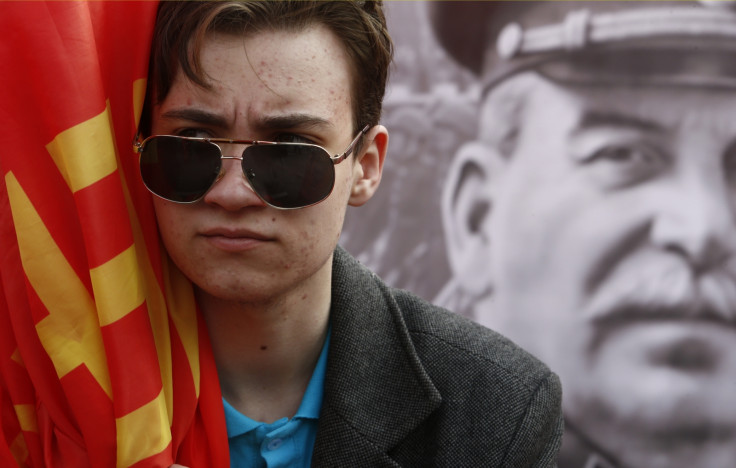How Vladimir Putin's Russia has rehabilitated 1,000 years of despotic rulers
From Ivan the Terrible to Joseph Stalin, Russian strongmen are enjoying a new lease of life.

Ivan the Terrible is not generally remembered as one of history's good guys. Russia's first Tsar put tens of thousands of civilians to the sword during his brutal fifty year reign, and famously killed his own son. Across Russia, not a single statue of Ivan existed for 161 years – until 2016.
In October the city of Oryol, south of Moscow, unveiled a bronze monument to the 16<sup>th century tyrant that was attended by Russia's culture minister, Vladimir Medinsky. The regional governor of the region, Vadim Potonsky, said that Ivan was "a great Russian monarch [who] did not let anyone encroach on our territory".
But Ivan is not the only Russian despot that has found a new lease of life of Vladimir Putin's Russia. Joseph Stalin has also been popping up all over Russia. In 2015 alone, two statues of the leader appeared in the village of Shelanger and the city of Penza, where a Stalin Centre was opened by the local branch of the Communist Party.
On October 30, Russia commemorates the Day of Remembrance of the Victims of Political Repression, which has been marked since 1991, the year of the dissolution of the USSR. In focus at rallies and events held across the country are the millions who died in Stalin's gulags and victims of his feared secret police between 1929 and 1953.
But while in modern mainstream thought Stalin is listed alongside Adolf Hitler and Mao Zedong in terms of the brutality of his rule, his image inside Russia is more opaque. In March 2015, a survey by the Moscow-based Levada Center found that 40% of Russians considered Stalin "more good than bad".
Stalin's brutal rule, during which millions of political dissidents and his personal opponents were either murdered or sent to gulags in Siberia, is for some Russian eclipsed by his industrialisation of the USSR and his leadership during WW2, when Russia was instrumental in defeating the Nazis and liberating Europe from Hitler.
That perception has only been encouraged by Putin, the former KGB chief and strongman who has led Russia since 1999. As Putin's Russia has become increasingly intolerant of dissent and the president's own rule more entrenched, so Stalin's disregard for civil liberties in his leadership of Russia has become more palatable.

Central to Putin's rhetoric in the last five years has been protecting Russia from outside influences and exerting its military might in Europe, most notably over the war in Ukraine and the annexation of Crimea. His expansionism has provided a useful distraction for Putin for Russia's tanking economy.
"Putin has evolved over the past 17 years he has been in power. Initially he was not authoritarian [but] the longer he has spent in power the more authoritarian the system became and the more this idea of strong political leadership grew. As a result, significant parallels started being drawn between Putin and previous Russian rulers," said Alex Kokcharov, an analyst at IHS.
In 2015, the Kremlin announced the erection of a 24-metre high status of another controversial Russian leader, Vladimir the Great to mark 1,000 years since his death in 1015. Moscow has been warned that the statue could jeopardise the Kremlin's Unesco listing, but the authorities intend to press on with the project regardless.
"They are willing to jeopardise the Kremlin's status as a historic site to project a strong man style of leadership going back over 1,000 years of Russian history," said Kokcharov.
© Copyright IBTimes 2025. All rights reserved.






















